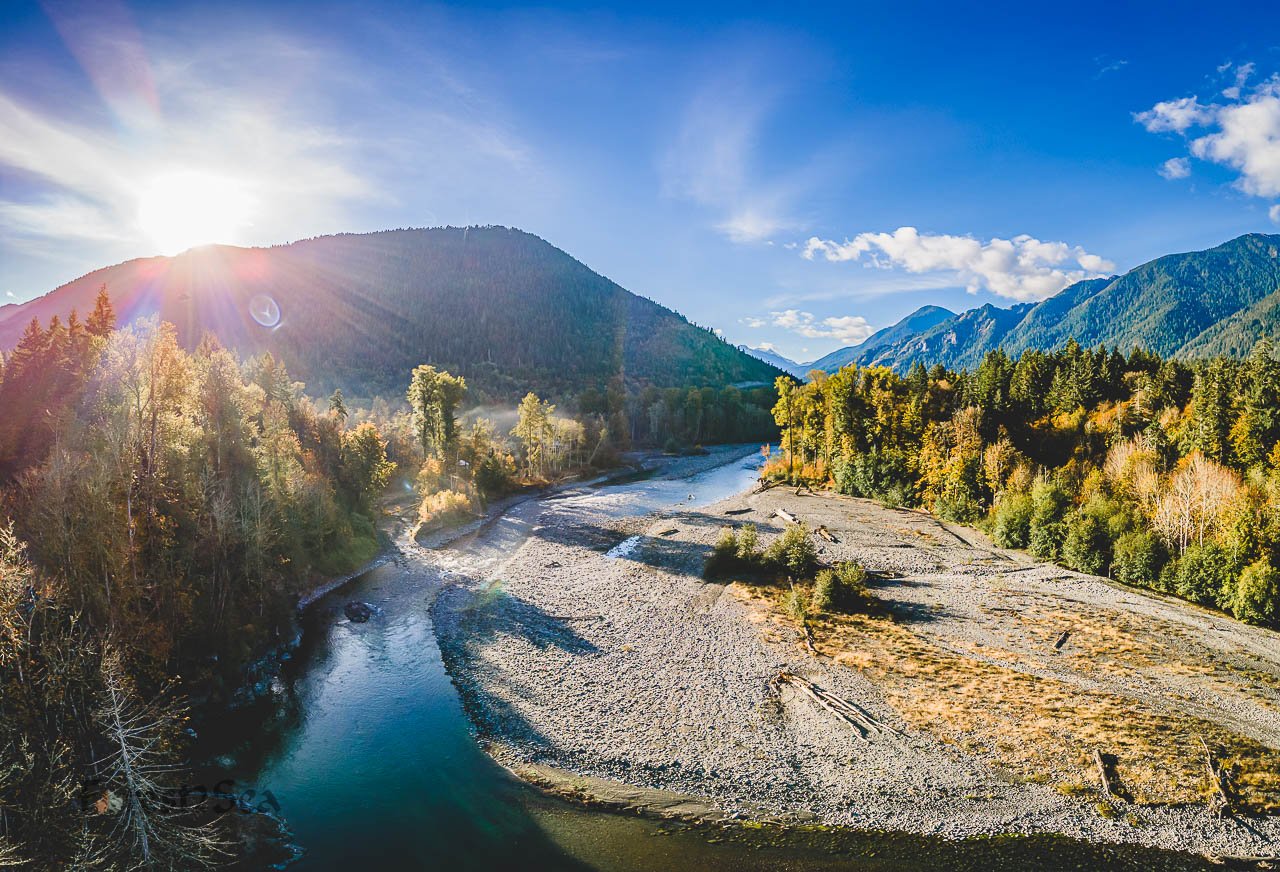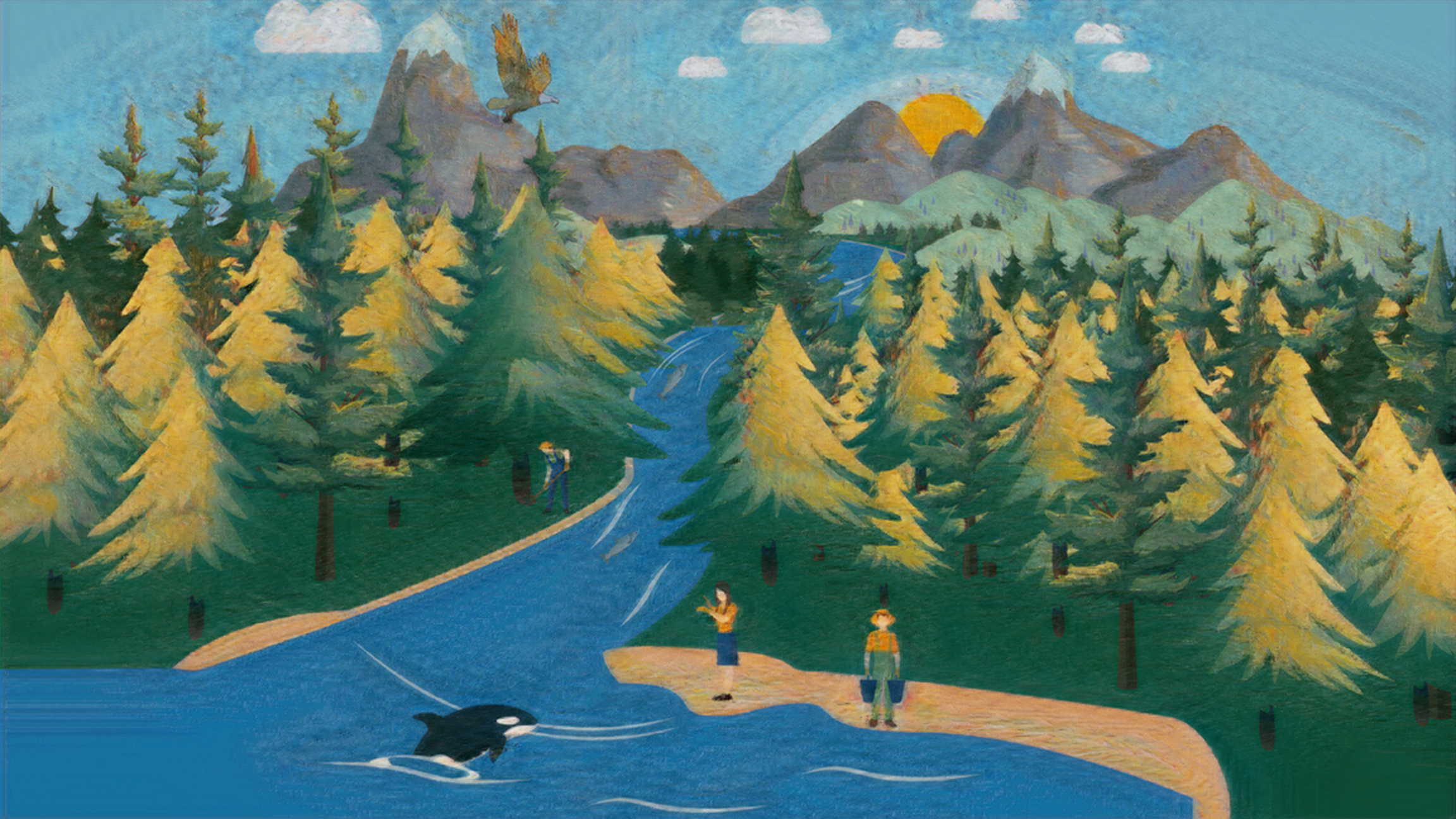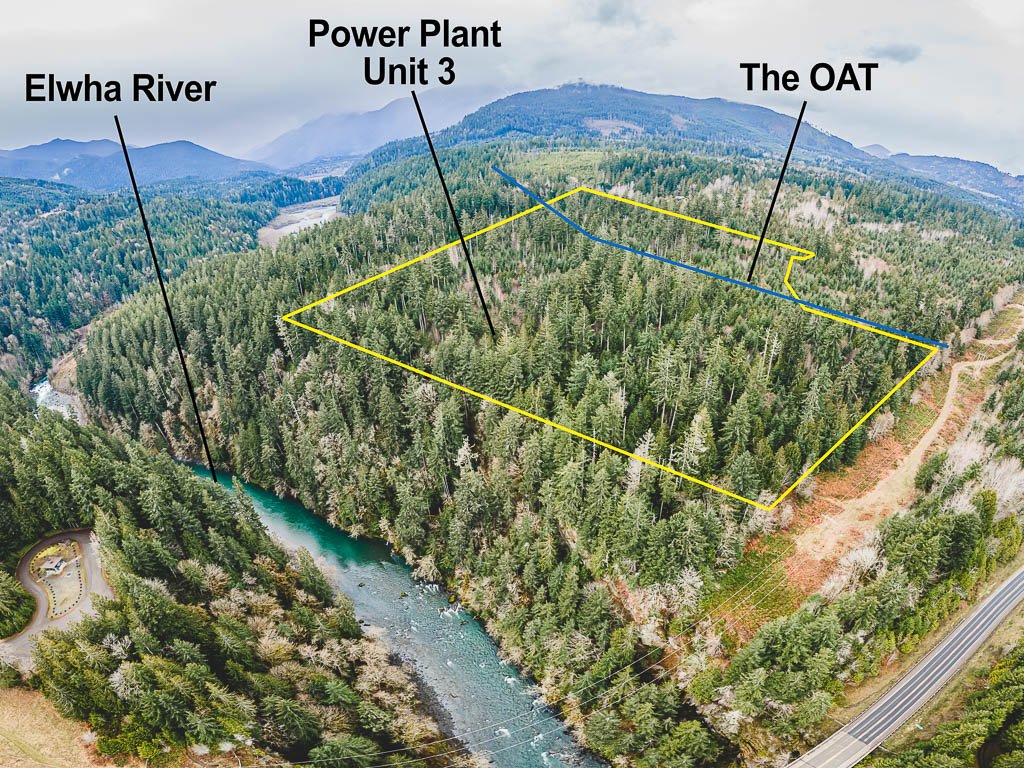
Elwha Legacy Forests
Urgent News
Protect the Elwha Watershed!
Lower Elwha Klallam Tribal citizens are calling for the protection of the Elwha Watershed from deforestation.
Everyone is welcome to add their name to the Petition in solidarity! Please read and sign.
Contact Elizabeth Dunne with any questions: edunne@earthlaw.org
Watch The Newly Released Film
The Elwha River’s Legacy Forests Tell An Interconnected Story
Forest health is tied to the health of endangered species like Chinook Salmon, and in turn, the Southern Resident Orcas. The surrounding forests also play a crucial role in protecting the water quality. The trees act as natural filters, removing pollutants and contaminants and help prevent soil erosion and sedimentation. The legacy forest root systems help to regulate water flow and reduce the risk of flooding. The Elwha River supplies Port Angeles' sole source of drinking water and along its banks are many culturally significant sites for the lower Elwha Klallam people.
A critical goal is to protect the Elwha River Watershed’s last remaining legacy forests for their intrinsic value along with drinking water security, climate adaptation benefits, carbon storage and sequestration, biodiversity preservation, and critical habitat, using innovative frameworks for local stewardship. This map shows the astounding loss of native forests in the Elwha Watershed.
Elwha River’s Legacy Forests Under Imminent Threat
Forests are essential carbon sinks that are estimated to capture and store 25% of global human emissions. Legacy forests are mature, structurally complex, naturally regenerated and biodiverse forests, often containing old growth trees.
In Washington State, globally significant temperate lowland rainforests are now rare. The remaining approximately 112,000 acres of legacy forests are on lands managed by the Washington State Department of Natural Resources (DNR). Yet, DNR continues to log them at a rapid rate. If these forests are clear-cut as planned, it is estimated that over 31 million metric tons of CO2 will be emitted just in the course of harvest and manufacturing. It would be a catastrophic loss of biodiversity havens for threatened and endangered species.
We designed our flagship campaign around the Elwha River because it is renowned as home of the biggest completed dam removal in the world. The Federal Government has spent over $327 million on restoration of the Elwha Watershed post dam-removal. Yet, there are over 3,000 acres of unprotected legacy forests in, and contiguous to, the Elwha River Watershed, with approximately 850 in the watershed itself at imminent risk of being logged.
Stopping the “Power Plant” Timber Sale &
Protecting The Legacy Forests
In early 2023, program director Elizabeth Dunne co-founded the Elwha Legacy Forests coalition. Through a combination of community organizing, political pressure, and filing a court action we stopped the entire 150-acre “Power Plant” timber sale and won permanent protection for 69 acres of critical legacy forest within the iconic Elwha River Watershed.
For the lawsuit, ELC partnered with plaintiffs the Center for Whale Research and the Keystone Species Alliance to weave together the threads of interconnectivity: When we destroy the forest, we harm salmon and, in turn, the endangered Southern Resident Orcas upon whom their survival depends. Thanks to Washington licensed attorney Steven Turner, we were able to promptly appeal this timber sale.
Shortly after winning protections for this critical forest, we worked with coalition members to protect an additional 120 acres of Elwha legacy forests with money from WA’s Climate Commitment Act.
The film Last Stand: Saving the Elwha River’s Legacy Forests chronicles how we stopped the “Power Plant” timber sale against all odds. Watch the powerful 20-minute film now. The film has won 4 best film awards & screened at 18 film festivals so far.
200 Acres Of Legacy Forests Saved
In just one year, we saved 200 acres of legacy forests in the Elwha River Watershed and delayed further logging activity. But suddenly the pause is off, and if we don't act now we could lose critical forests near the Elwha River by the end of this year! We are calling on allies from around the world to stand in solidarity with the Lower Elwha Klallam People and join the urgent action above by signing in support of their Petition.
Lawsuits Filed Against 2 More Elwha Forest Timber Sales
We’re back in court defending the Elwha Forests. This time challenging the “Parched” and “Tree Well” timber sales which would clear-cut nearly half the remaining legacy forests in the Elwha Watershed. Read our appeals below. We’re fortunate to be joined by co-plaintiffs Center for Whale Research and Orca Network who help bring the voice of the endangered Southern Resident Orcas to the courtroom.
State law recognizes “that each person has a fundamental and inalienable right to a healthful environment and that each person has a responsibility to contribute to the preservation and enhancement of the environment.” Yet, the State continues to log without regard to the devastating consequences of losing the last remaining temperate lowland rainforests.
As our cases continue, we’ve collaborated with the Legacy Forest Defense Coalition who also filed lawsuits against these sales. To uplift the voices of local communities and Indigenous peoples, we gathered powerful declarations (linked below) to demonstrate the harm that will occur if logging is allowed.
Lower Elwha Klallam Tribal citizen Tashena Francis shares:
“Without these forests we lose a core part of who we are. We have gathered native and medicinal plants in these forests since time immemorial. Turning naturally regenerated forests into monocrop plantations destroys our ability to gather in our usual and accustomed areas – a right protected by treaty.
It is incredibly painful for me to see clearcuts all around us. To feel the impact to our way of life and to know that the winged ones and the four-legged are suffering too. From our teachings, we learn to respect nature. We know that we are part of nature and that the animals, plants and trees are our relatives.”
List of Declarations:
Declaration of Port Angeles City Councilmember & Jamestown S’Klallam Tribal Citizen LaTrisha Suggs
Declaration of Lower Elwha Klallam Tribal Member Tasehena Francis
Declaration of Lower Elwha Klallam Tribal Elder Linda Wiechman
Declaration of Ellen Menshew, Chair of Clallam County Democrats
Success: Landscape Level Conservation in the Elwha Watershed is Coming!
Great news. The measure we drafted with the Center for Responsible Forestry to start the process of creating a conservation area in the Elwha Watershed passed the state legislature! Read our press release HERE. The measure, which directs DNR to look not only at legacy forests, but rare plant communities and areas of cultural and historical significance, provides us the most promising pathway to permanently protecting these sacred forests.
Over the next year, we will be working with our Indigenous allies, key partners, DNR and the Watershed’s inhabitants to turn this broader vision into a reality and to ensure the voice of Nature is part of the process.
Our next steps and key goals moving forward include:
Protect. Protect legacy forests in the Elwha Watershed and Beyond
For Elwha Legacy Forests.
Permanently protect the remaining 57 unprotected acres of the “Power Plant” timber sale through an innovative conservation lease that would allow for purchase of the forest so that it can exist, thrive, evolve, and be restored.
Advocate for a new ecocentric law to steward the Elwha River Watershed based on principles of respect and reciprocity. For an inspiring example check out the Indigenous-led Salmon Parks efforts in Canada.
For all WA Legacy Forests.
Advocate for an Ecological Forest Reserve that will permanently protect all legacy forests.
Educate. Distribute the Last Stand film. Hold educational workshops melding cutting edge science with Indigenous ancestral knowledge. Co-host community forest hikes to reawaken the Human-Nature connection.
Litigate. Collaborate with partners to file timber sale appeals and test cutting-edge legal theories that would alter DNR management practices and ensure forest practices that account for the health and well-being of present and future generations.
Innovate. Build off of our Elwha Forest Fund idea to explore alternative means of replacing revenue from timber harvests (including state funds and philanthropic donations) and of generating revenue from protected forest lands.
Steward. Develop an ecocentric community forest stewardship model by integrating Indigenous ancestral knowledge and centering the health of the Watershed as intrinsically linked to human health and well-being.
Learn more about this campaign
Aerial view of some past and planned sales in the Elwha Watershed. Credit: © Photos by forest2sea.com
“Power Plant” timber sale consisted of several units, Units 3 and 4 are adjacent to the River itself, with other units in critical headwaters and along the Olympic Adventure Trail, a popular hiking destination. Credit: © Photos by forest2sea.com
-
On March 5, 2023, Earth Law Center co-sponsored a rally to raise awareness about the State’s decision to defy the City’s request to pause the “Aldwell” timber sale in the Elwha River Watershed. Over a hundred community members, largely from Port Angeles, lower Elwha Klallam Tribe, Jamestown S’klallam Tribe, Lummi Nation, and surrounding areas in the Olympic Peninsula, joined together in a peaceful rally.
Unfortunately, even this was not enough, and the forest that was part of the “Aldwell” timber sale was fully logged (166 acres).This tragedy became the catalyst to form the Elwha Legacy Forest coalition and to use all available tools to halt industrial logging of legacy forests in the Elwha Watershed.
-
Stephen Kropp, founder of the Center for Responsible Forestry and now head of the Legacy Forest Defense Coalition, started the movement to protect legacy forests in Washington.
In just a few years, the coalition of organizations working to protect legacy forests has grown considerably. Through community hikes, educational events, press coverage, political pressure, and lawsuits more legacy forests are being saved.
These individual victories create an environment ripe for systemic change.
ELC works with a broad coalition of organizations, Indigenous elders, and the City of Port Angels and is an active member of the Pacific Northwest Forest Climate Alliance. ELC volunteer attorney Joel Summer is counsel for the Legacy Forest Defense Coalition in a timber sale appeal filed in Spring 2024, seeking to protect over 100 acres of legacy forest and old-growth trees in Pacific County, WA.
-
Ecocentric refers to a nature-centered approach; one that fosters a harmonious relationship with Nature and with ourselves, as a part of Nature. We are deconstructing the colonial mindset: One rooted in resource extraction and embedded in mainstream societal values and the very building blocks of the US legal system. Indeed, the Washington State constitution contemplates forest management for revenue, including for schools. While, the WA Supreme Court’s landmark decision in Conservation Northwest et al. v. WA Department of Natural Resources et al., recognized the opportunity for revenue generation from forest lands by means other than extractive logging, we are still left with a system that commodifies Nature. One that has tied school funding to the destruction of these life-giving ecosystems.
ELC’s amicus brief in the Conservation Northwest case advanced a novel argument – that people have a fundamental right to live in a balanced relationship with the Earth (as secured by Art. 1, section 30 as a right retained by the people), and included an Acknowledgment Regarding Indigenous Sovereignty and the Inherent Rights of Nature, reading in part:
“More fundamental than our colonial legal framework are the inherent rights of the Indigenous Peoples who have walked, since time immemorial, on these lands, and the rights of Nature itself, with the corresponding human responsibilities to ensure that all life has the chance to flourish. The sacred relationship between humans and Mother Earth is out of balance. The type of land exploitation and profit-maximization endorsed by DNR has led us to a place where we struggle to protect the last mature and old growth forests on what are now called state lands. Amici respectfully ask the Court to keep these fundamental truths in mind when considering the issues before it, remembering to place those issues in the larger context of historical injustices and the undeniable realities of the climate crisis.”
ELC’s amicus brief in the Conservation Northwest case advanced a novel argument – that people have a fundamental right to live in a balanced relationship with the Earth (as secured by Art. 1, section 30 as a right retained by the people), and included an Acknowledgment Regarding Indigenous Sovereignty and the Inherent Rights of Nature, reading in part:
“More fundamental than our colonial legal framework are the inherent rights of the Indigenous Peoples who have walked, since time immemorial, on these lands, and the rights of Nature itself, with the corresponding human responsibilities to ensure that all life has the chance to flourish. The sacred relationship between humans and Mother Earth is out of balance. The type of land exploitation and profit-maximization endorsed by DNR has led us to a place where we struggle to protect the last mature and old growth forests on what are now called state lands. Amici respectfully ask the Court to keep these fundamental truths in mind when considering the issues before it, remembering to place those issues in the larger context of historical injustices and the undeniable realities of the climate crisis.”
Additional resources on the Elwha Legacy Forest Campaign
-
-
-
-
Last Stand: Saving the Elwha River's Legacy Forests
Real time footage captures the depths of the human relationship to forests and the joys of a hard fought win. Through breathtaking cinematography and intimate interviews, witness the profound beauty and ecological significance of the watershed, as well as the dire consequences of unchecked deforestation. Featuring ELC's Elizabeth Dunne, along with an incredible cast including prominent scientist Dominick DellaSala (World Heritage Institute) and Freddie Lane (member, Lummi Nation). -
-
Notable Quotes Given in Support of the Campaign to Protect Elwha Legacy Forests
-
Suzanne Simard, bestselling author of Finding the Mother Tree
“The world is relying on us to protect the forests of the Pacific Rim because of their crucial role in stabilizing climate, supporting biodiversity and maintaining hydrologic integrity. Clearcutting the precious Elwha forests for short-term profits would be a massive blow to the health of current and future generations. We need birds singing, salmon spawning, and food growing more than money in the pockets of a few. The Elwha forests are worth more standing.”
-
Paul Stamets, D.Sc. (Honaris Causa), Invention Ambassador for the American Academy for the Advancement of Science (AAAS), Member, Mycological Society of America & North American Mycological Association
"Our old growth forests are undervalued – we should not be deceived that short term gains in selling lumber accurately reflects the value of the intact biodiversity resident within these ancient stands. In particular, varieties of Agarikon (Fomitopsis officinalis aka Laricifomes officinalis) are now known to have potent antiviral properties. But not all of them. We are still deep in investigating the anti-flu, anti-herpes, and anti-pox viral properties of this mushroom, which many mycologists describe as the longest living, if not the longest living mushroom in Western North America. Without these old growth forests, this mushroom species is absent. I strongly urge that old growth forest reserves hosting these rare mushrooms be spared --- or at least considered -- for their contributions to future medicine. Once we lose these libraries, we may lose remedies for protecting ourselves from pandemics, which most scientists agree, will be coming with increasing frequency and severity. Our old growth forests are critical, in my opinion, for our national defense."
-
Honorable Paulette Jordan (Coeur d’Alene), Native American Politician and Business Woman, who served in Idaho House of Representatives and ran for Idaho Governor and US Senate
The Honorable Paulette Jordan shared: “As Indigenous Peoples - stewards of the lands and rivers here since time immemorial – we know that all life is interconnected. A river needs a healthy forest, and salmon need a healthy river. As Wy-Kan-Ush-Pum or ‘Salmon People’, we know that our own well-being is inseparable from healthy ecosystems. This is why you see First Nations in BC creating ‘salmon parks’ to protect critical forests in watersheds. We need visionary leadership who will respect our knowledge and see that protecting our legacy forests is an investment that will sustain present and future generations mentally, physically, spiritually, and economically.”
Key Partners
Elwha Legacy Forests Coalition, Legacy Forest Defense Coalition, Center for Responsible Forestry, Olympic Forest Coalition, Olympic Climate Action, Sierra Club, Center for Whale Research, Keystone Species Alliance, Pacific Northwest Forest Climate Alliance
Header Photo: forest2sea.com







